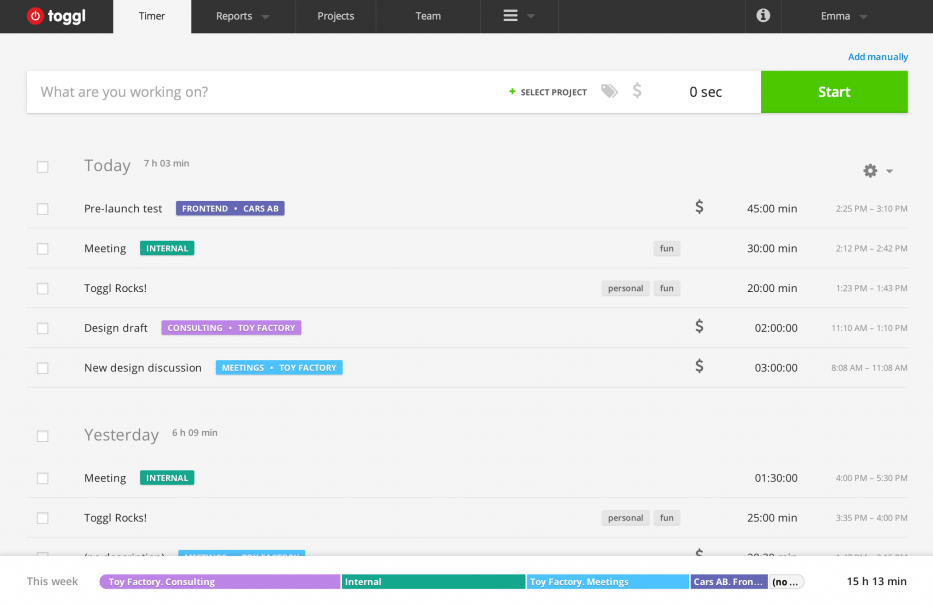Most Popular Business Time Clock Company
Related Articles
- 1 What Are the Benefits of the Fair Labor Standards Act?
- 2 Time Sheet Requirements by Law
- 3 Get Accurate Time Sheets
- 4 OSHA Break Requirements
Discover the best Time Clocks & Time Cards in Best Sellers. Find the top 100 most popular items in Amazon Office Products Best Sellers. A tagline or your company name or your name initials can also be a logo design. Just incorporate it in a unique way, so it stands out from the others. The logo is a signature of your brand; it is one of the company’s most valuable assets. A well-designed logo is the one that exposes your business and communicates your message to the public. Nov 2, 2018 - The time clock is an integral part of most businesses. It helps keep track of work hours so you can pay employees accordingly. Whether your.
'Punching the clock' is an expression commonly used for working at a job that demands physical presence rather than emotional engagement. A punch clock in a workplace provides employers and employees with a degree of accuracy when measuring payroll hours; however it reinforces a dynamic that can stifle creativity and lead workers to count the hours until it is time to go home.
Advantages for Employees
Employees who punch a time clock have a clear sense of when their work day begins and when it ends. An employer cannot fairly ask an employee for extra help before he has punched in or after he has punched out, and an employee who punches out for his lunch hour can refer to his time card if his employer asks for extra help during this time.
7 days ago - World Light Vehicles sales in April declined by 7.2%, with 6.694.638 units sold. In sixth place the Ford Motor Company ( Ford, Lincoln) involved in sharp times. Rank 2019, Rank 2018, Group, Sales YTD 2019, Sales April, '+/. Electric Vehicles, Estonia, Ethiopia, Europe, Europe, Europe A-F, Europe. 
Disadvantages for Employees
The requirement to punch a time clock creates a workplace atmosphere based on objective verification rather than fundamental trust. While this dynamic is often necessary in work settings where employers and employees do not build personal relationships, at a small company it can interfere with the process of building goodwill. Employees who are required to punch a time clock are likely to believe that their employers do not trust them to accurately report their hours, and consequently they may feel that they are not sufficiently valued.
Advantages for Employers
Employers who require their employees to punch a time clock can be certain that they are not paying workers for hours when they have not worked. This is especially important at retail jobs, which depend on the presence of employees during specific hours. Keeping accurate track of the times when workers are physically present can save an employer considerable amounts of money if his employees are inclined to round high when reporting their hours.

Disadvantages for Employers
Despite the increased accuracy that a timeclock provides, the quality of an employee's performance during work time can be at least as important as the specific times when he is present at his job. Aside from jobs such as staffing a retail store, which necessitates being physically present during specific hours, employee productivity is often tied to variables other than the specific number of hours or minutes that he spends at work. For example, an employee who gets enough sleep will often do a better job than one who awakens prematurely and rushes to work. The act of punching a time clock orients workers towards arriving at a specific time, but gives them little incentive to be at their best when they arrive.
References (3)
About the Author
Devra Gartenstein is an omnivore who has published several vegan cookbooks. She has owned and run small food businesses for 30 years.
Photo Credits
- clock image by Elena Nabokova from Fotolia.com
Choose Citation Style
Most Popular Business Time Clock Company Reviews





